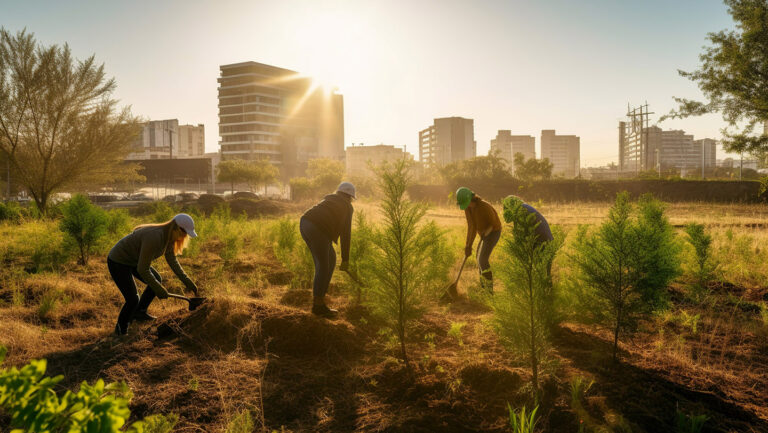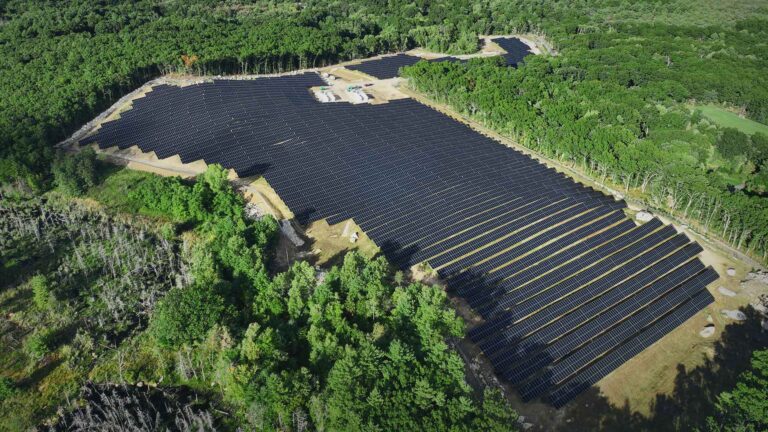Maine Solar Solutions in Lincolnville: Project Overview
This 5.9MW project on previously-used farmland helped advance Maine solar solutions by creating a community shared solar site and stable income for the landowner, as well as rewilding the land. One of the key features of this project is the use of Northeast Pollinator 3’ Mix from Ernst Seed, which is specifically designed for solar projects in the Northeast as it supports pollinators. Providing a source of food for the important pollinator species that maintain a habitat around the solar array is an important way to protect the land, mitigate invasive species, and better understand the species that flourish around these solar projects.
How Does Rewilding Work? Project Approach
During construction, we seeded the area underneath the panels and within the fenced-in solar array with the Northeast Pollinator mix. This mix includes native species like butterfly milkweed that are beneficial for pollinators in the Northeast, and they reach a height of only three feet, which means the land and species will be supported without shading the panels in a significant way. It is certainly an advantage for a solar project when we can make vegetation management easier while simultaneously providing greater benefits to wildlife than are possible with a standard grass seed mix.
Following construction, we also planted a more robust pollinator-friendly seed mix on the project’s construction laydown area. This seed mix included a greater quantity of native wildflower species and was specially designed for our solar development efforts in Maine by RS Leonard Landscape Architecture, a Maine-based design firm, and Ernst Seed.
The mix incorporates several native grass and wildflower species that will provide a source of food for important pollinator species.
Project Takeaways
Rewilding the former laydown area of the project with a robust seed mix allows us to easily monitor the establishment and success of the seed mix, as well as help remove any invasive species that could outcompete the native species we want to see grow and flourish in the area.
We are also able to conduct something of an experiment, as we will be able to see which native species are most successful around solar projects in Maine and go on to include those species in greater quantities for future projects.




